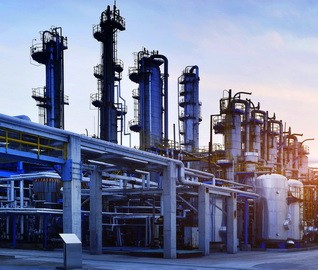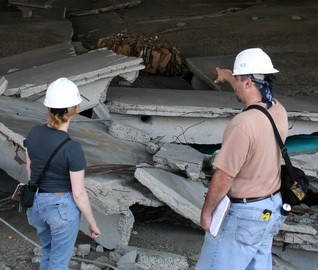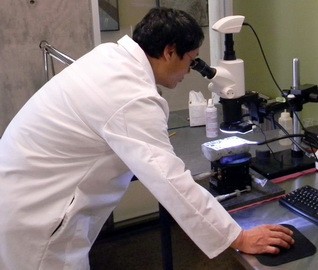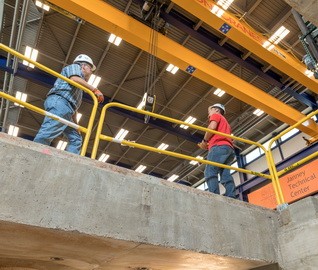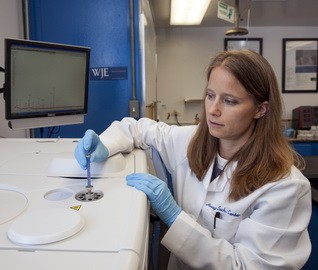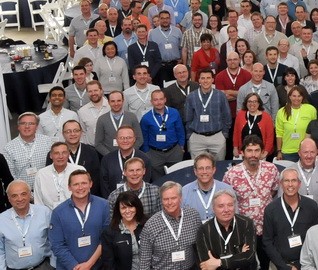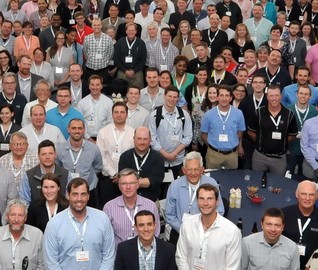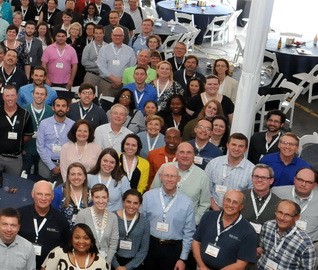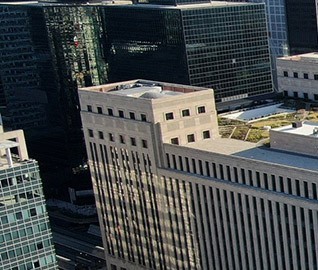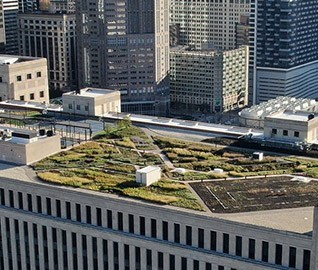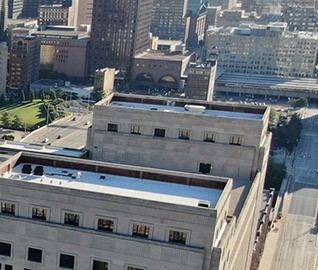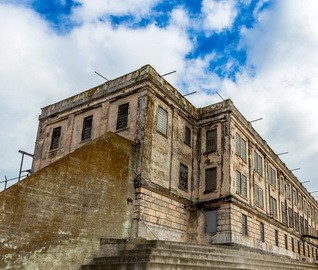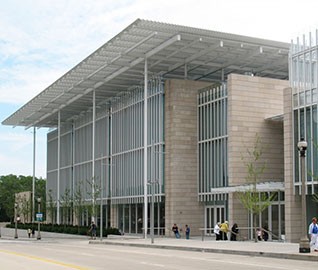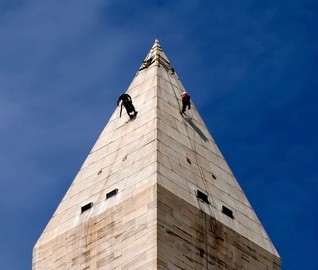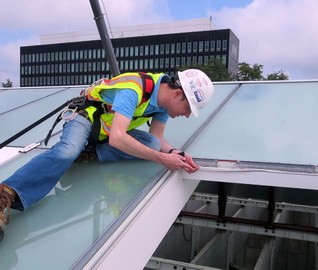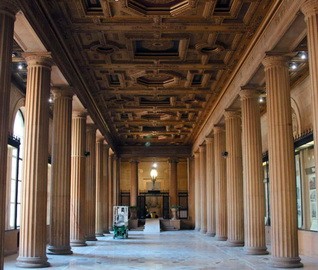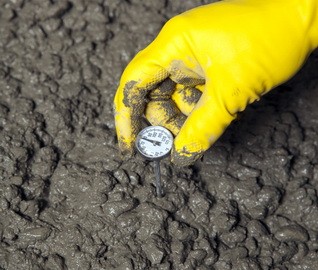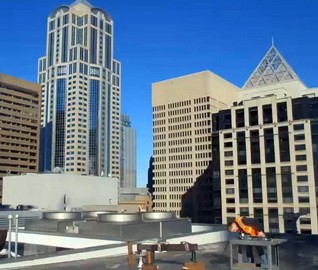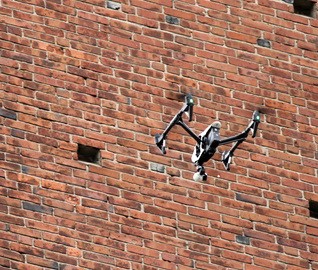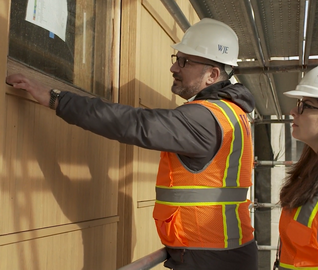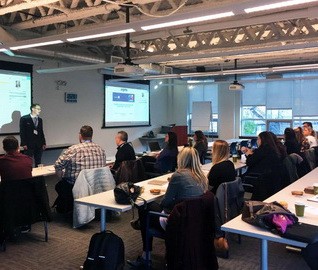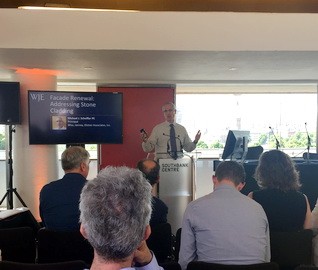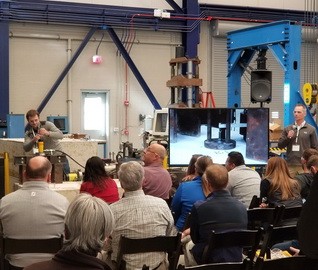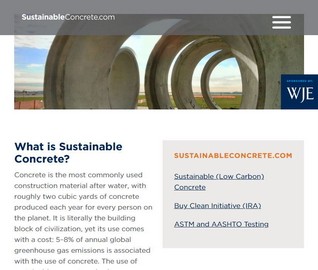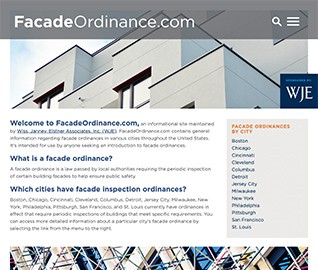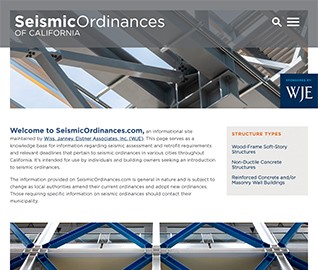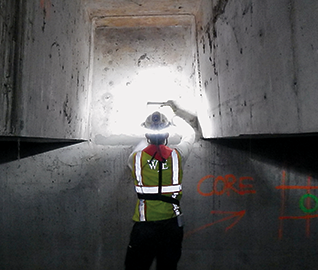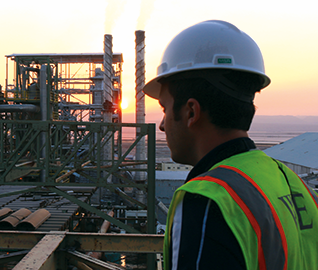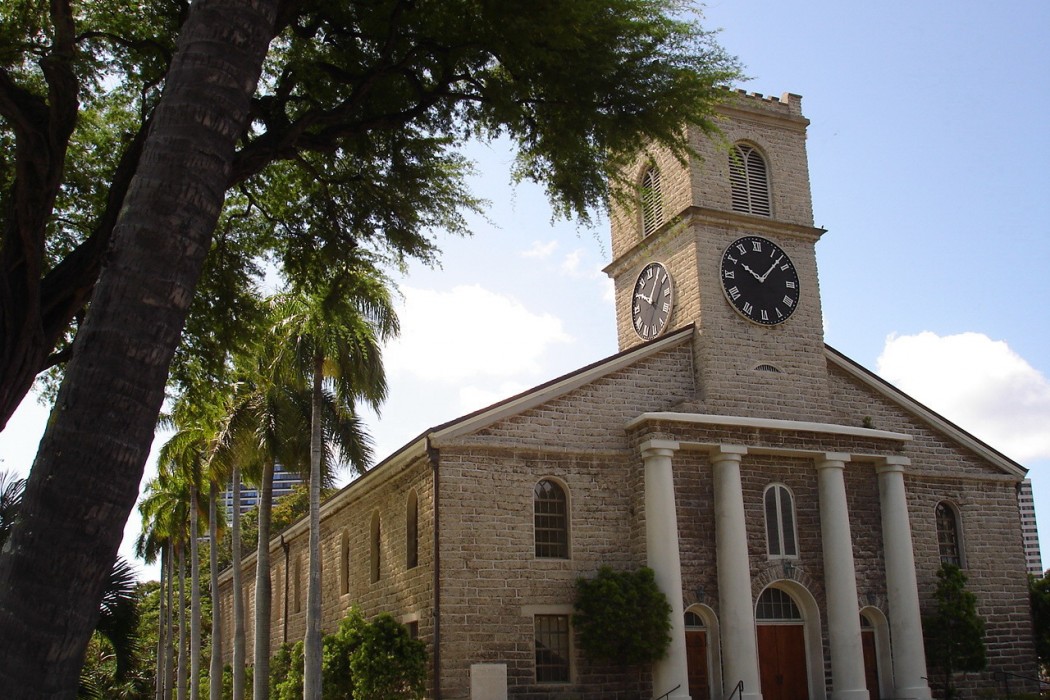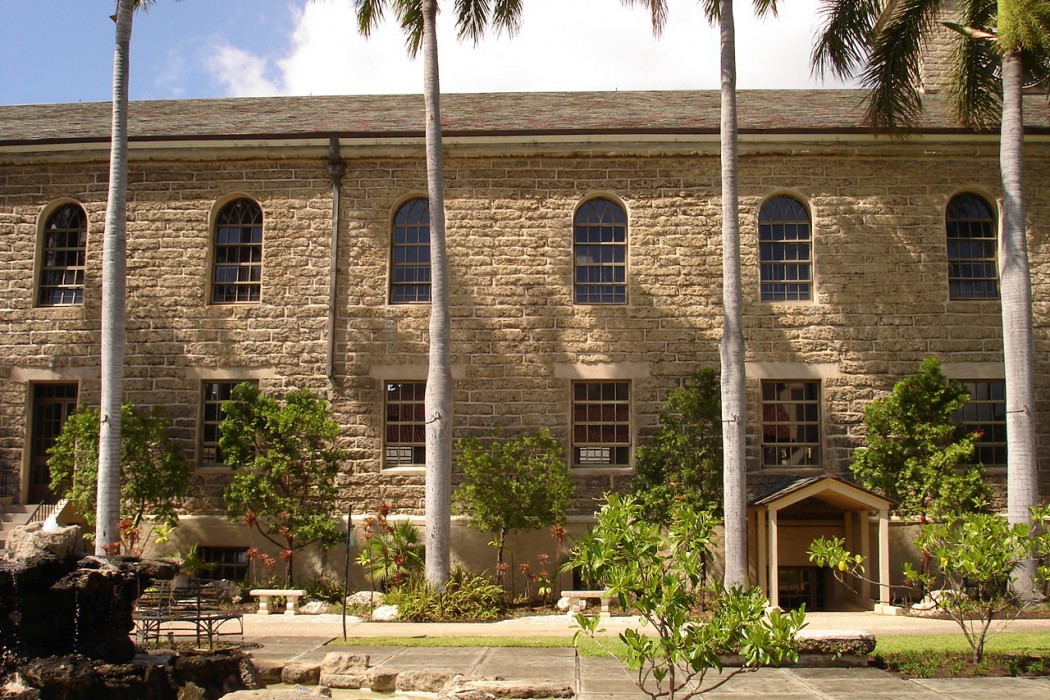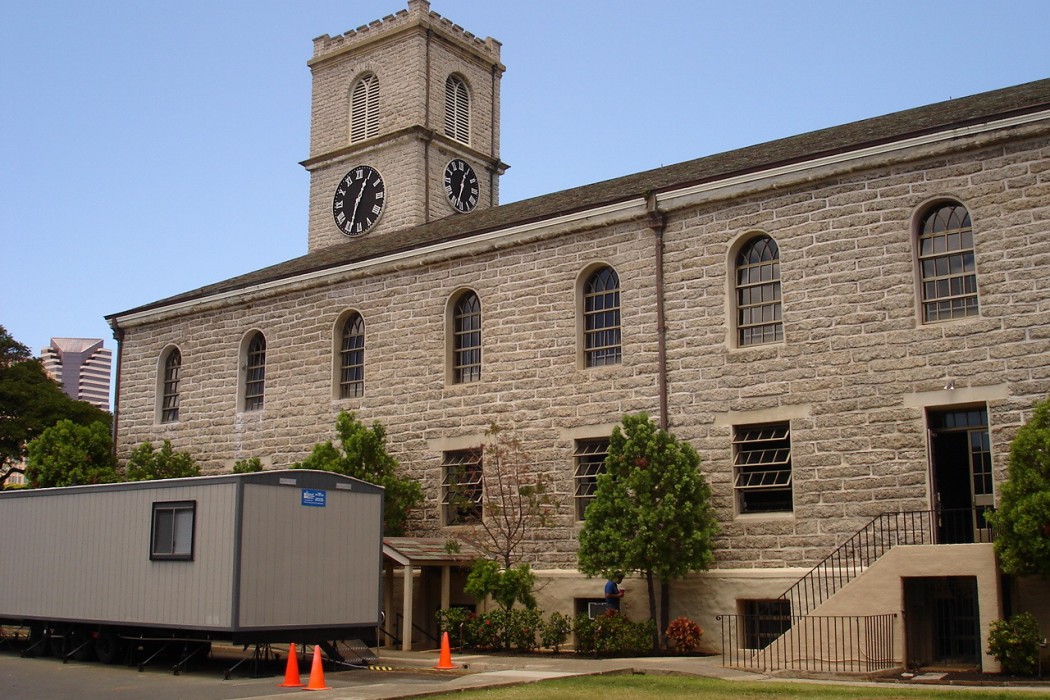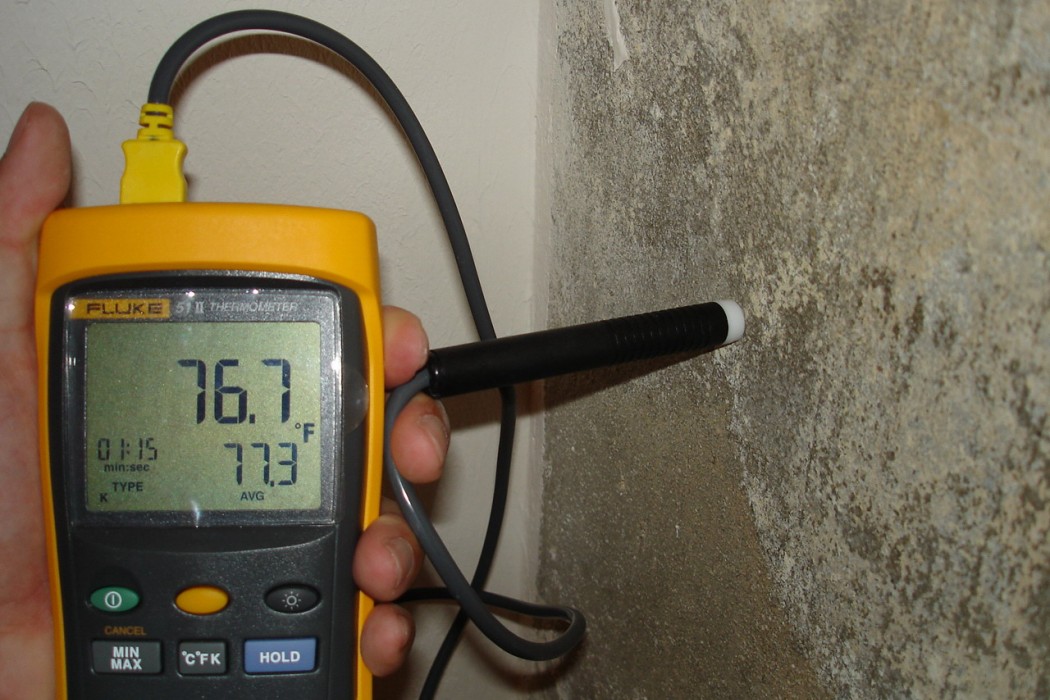WJE PROJECTS
Kawaiaha'o Church
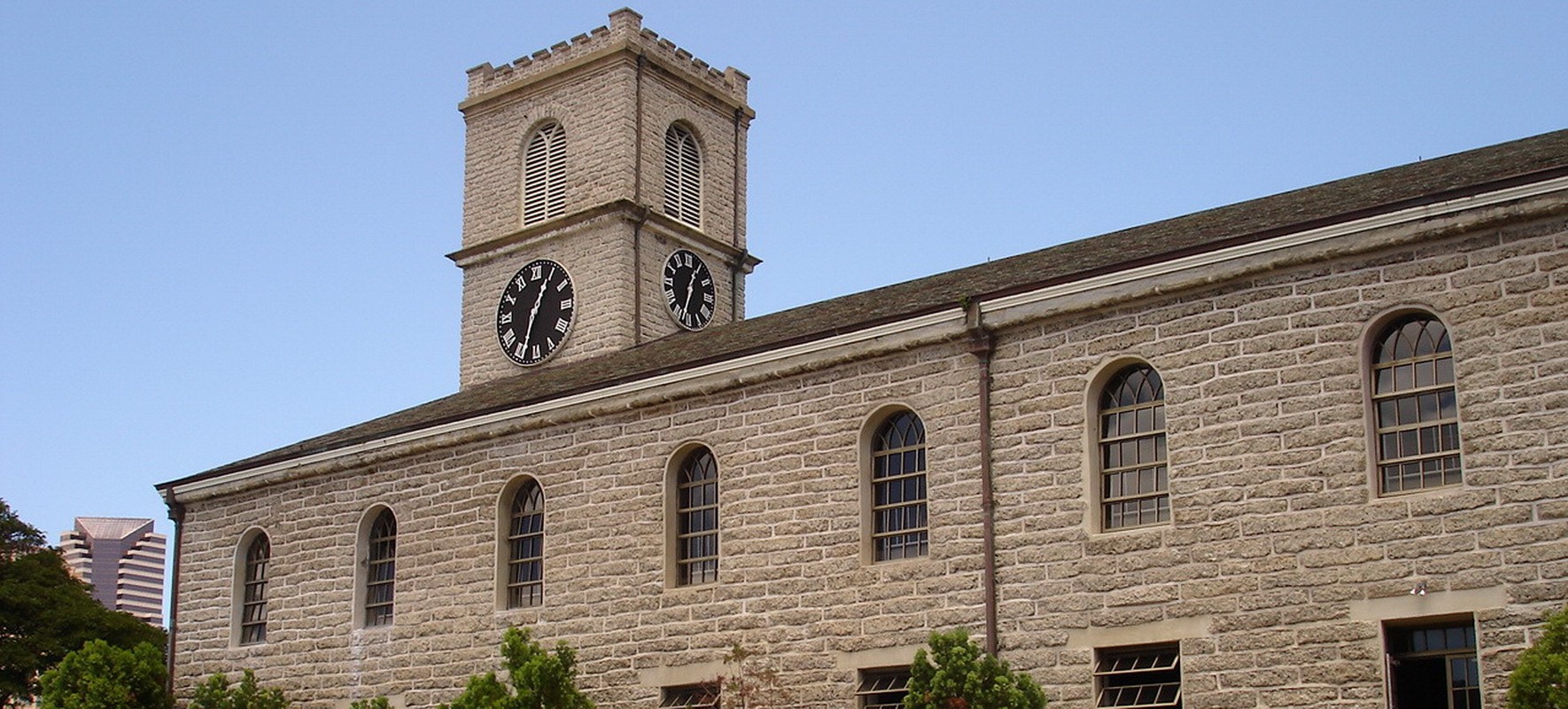
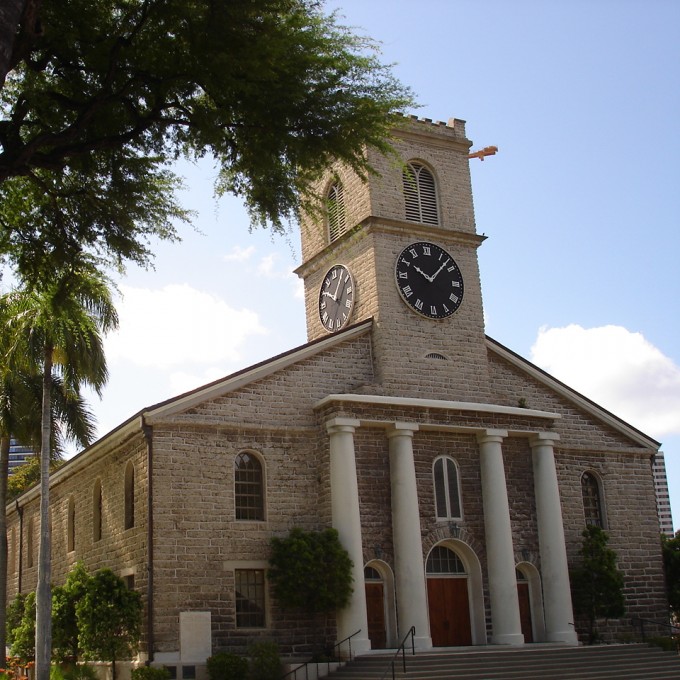
CLIENT |
Kawaiaha'o Church |
LOCATION |
Honolulu, HI |
Investigation of Rising Damp
Kawaiaha'o Church retained WJE to investigate reports of water intrusion in the basement classrooms, offices, and storage spaces. Church personnel sited occurrences of water weeping through the interior walls and pooling on the concrete slab, causing staining and delamination of the interior plaster finishes.
BACKGROUND
The Kawaiaha'o Church, known as the "Mother Church" of Hawaii, was designed by Reverend Hiram Bingham and dedicated in 1842. This National Historic Landmark has a Basilican plan with three interior levels and belfry tower over the narthex. The church was constructed of 14,000 coral blocks cut with hand tools from the nearby Kaka'ako reef. The blocks range in depth from twenty-seven inches at the gallery level to forty-four inches at the partially below grade basement. The interior coral block surfaces were finished with direct-applied cement plaster, while the exterior coral surfaces were left exposed.
SOLUTION
WJE performed interior and exterior surveys of the coral blocks to document the deterioration, and multiple field tests were performed to determine the source of the moisture, including soil boring to establish the groundwater elevation; interior atmospheric monitoring; limited water testing; thermal imaging; moisture testing; and absorption testing of the coral blocks.
Rising damp— occurring up to fifteen feet high within the coral block walls—was determined to be the primary cause of the interior plaster wall finish deterioration. The condensation issues were determined to be the result of high humidity weather and a lack of natural ventilation combined with an archive storage room under constant temperature and humidity control.
WJE recommended the replacement of plaster with white-washed lime mortar on all interior coral block walls at the basement level, allowing the wall to breathe. WJE also recommended a mortar wash to fill large voids in the exterior coral block and to reduce moisture ingress. Finally, WJE recommended alterations to the perimeter landscaping and water drainage systems to reduce future water infiltration.
RELATED INFORMATION
-
 We utilize experienced professionals and state-of-the-art modeling and analysis techniques to... MORE >Services | Building Enclosure Testing
We utilize experienced professionals and state-of-the-art modeling and analysis techniques to... MORE >Services | Building Enclosure Testing -
 Clients turn to us when they need a firm that fully understands the aesthetic and functional... MORE >Services | Building Enclosures
Clients turn to us when they need a firm that fully understands the aesthetic and functional... MORE >Services | Building Enclosures -
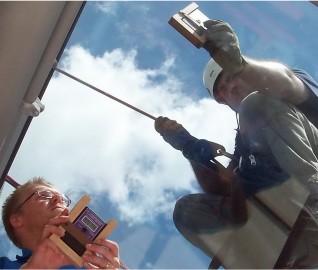 Our building science expertise and resources are the result of a commitment to understanding the... MORE >Services | Building Science
Our building science expertise and resources are the result of a commitment to understanding the... MORE >Services | Building Science


